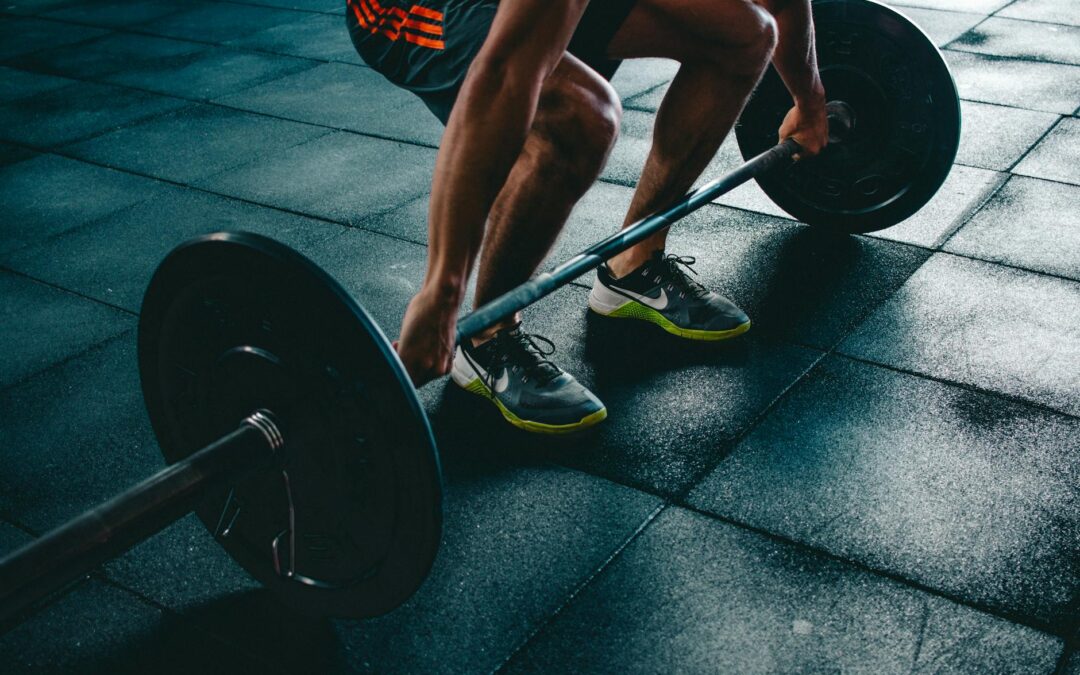Understanding Testosterone and Its Role in Men’s Health
Testosterone is much more than just the hormone tied to masculinity. It drives key physical, mental, and emotional processes, shaping the essence of what many define as men’s health. Understanding what testosterone does can give insight into how it impacts your everyday life.
What is Testosterone?
Testosterone is the primary male sex hormone, produced mainly in the testicles. While it’s often associated with defining male characteristics like a deeper voice or facial hair, its reach extends far beyond appearances. Testosterone begins its influence even before birth, helping form male reproductive organs. As boys enter puberty, it drives changes like increased muscle mass, body hair, and a boost in height. In adults, testosterone supports more than just physical traits—it plays a role in mental health, energy, and overall well-being.

Photo by Ketut Subiyanto
But it’s not an endless supply. Testosterone levels naturally decline with age, typically dropping by 1%-2% each year after 30. While this is normal, steep declines can signal an issue requiring attention.
Functions of Testosterone
Testosterone isn’t just about looking or feeling “manly.” Its influence spans across your body’s major systems, acting as a multi-tasker for your health. Here’s what it does:
- Muscle Mass and Strength: Testosterone promotes protein synthesis, essential for building and maintaining muscles. Without it, workouts might feel less effective.
- Libido and Sexual Health: Often labeled the “sex drive hormone,” testosterone fuels libido. Lower levels can result in reduced interest in physical intimacy.
- Mood and Emotional Balance: It’s also involved in your emotional well-being, helping regulate mood and reducing your risk for depression. Feel irritable or down often? Low testosterone might be at play.
- Bone Density: This hormone supports bone health, significantly reducing risks of fractures as you age.
- Energy Levels and Mental Clarity: Testosterone doesn’t work alone, but it’s a key contributor to how energized and focused you feel day-to-day.
Think of testosterone as the steady engine oil in your car. When levels run smoothly, you may not even notice it, but low levels can lead to breakdowns that affect everything from your body to your mind.
By understanding the hormone’s full range of responsibilities, it’s easier to connect the dots when things feel “off.” If you’re experiencing significant changes in strength, motivation, or mood, it might be time to explore whether your testosterone could be a factor.
Common Signs of Low Testosterone
Low testosterone, or “low T,” can sneak up on you in ways that affect both physical and emotional health. Many men often brush off symptoms as part of aging or temporary stress, but recognizing them early can make all the difference. Here are some of the common signs to watch for.
Reduced Sex Drive
A noticeable drop in libido is often one of the first signs of low testosterone. Testosterone fuels your sexual energy, so when levels drop, so does interest in intimacy. This can strain relationships, leading to feelings of guilt or frustration. If you find yourself consistently less interested, it might not just be “getting older”—low T could be a factor.
Erectile Dysfunction
Low testosterone can directly affect your ability to achieve or maintain an erection. While other health issues like diabetes or blood pressure often contribute to erectile dysfunction, testosterone plays a critical role by stimulating receptors in the brain to produce nitric oxide, which triggers an erection. Struggling in this area may suggest hormonal imbalances beyond the occasional off day.
Fatigue and Decreased Energy Levels
Feeling drained—even after a full night’s sleep? Low testosterone could be the culprit. Testosterone helps regulate energy, and a deficiency can lead to chronic fatigue, making it tough to carry out daily tasks. Whether you’re skipping workouts or struggling to stay motivated at work, energy loss may not just be “in your head.”
Mood Changes and Irritability
When testosterone dips, it doesn’t just affect your body—it affects your mood too. Men with low testosterone levels often report feeling irritable, down, or even depressed. Think of testosterone as a stabilizer for your emotions, and without enough of it, mood swings can become far more frequent.
Increases in Body Fat
As testosterone declines, the body’s ability to maintain lean muscle mass reduces. Without this natural fat-burning capacity, weight gain, particularly around the abdomen, becomes more common. Low testosterone is also linked with an increase in estrogen levels, which can promote fat storage in the belly region.
Decreased Muscle Mass and Strength
Testosterone plays a critical role in building and maintaining muscle mass. If you notice a significant decrease in strength or have difficulty gaining muscle despite regular workouts, low testosterone may be the reason. This decline in muscle mass is often accompanied by an increase in body fat.
Memory and Concentration Issues
Low testosterone has also been linked to difficulties in focusing, poor memory retention, and lack of mental clarity. This cognitive fog is often exacerbated by fatigue and mood fluctuations, making everyday tasks feel harder to accomplish.
Testing for Low Testosterone
If symptoms suggest low T, the next step is conducting blood tests to measure your hormone levels. Testosterone blood tests are crucial, as physical symptoms alone don’t provide definitive answers.
- Timing Matters: Testosterone levels are usually highest in the morning. Most blood tests are scheduled before 10 a.m. to capture the most accurate measurements.
- Key Measurements: Total testosterone is measured (this includes free and bound testosterone). Levels below 300 nanograms per deciliter (ng/dL) are generally considered low.
- Other Tests: Your doctor might also check related hormones, like luteinizing hormone (LH) or prolactin, to identify if the issue lies elsewhere, such as with the pituitary gland.

Photo by Pixabay
Blood draws are straightforward and typically take just a few minutes. Results help confirm whether symptoms align with low testosterone levels, enabling your provider to make an informed diagnosis.
Treatment Options for Low Testosterone Hormone Optimization Therapy
Addressing low testosterone starts with understanding the variety of treatment options available. These options cater to different lifestyles and health needs. Below are effective approaches to consider.
Hormone Replacement Therapy
Hormone replacement therapy (HRT) involves supplementing your body with synthetic testosterone to restore balance. It’s typically recommended for men with significantly low levels as determined by blood tests. Testosterone can be administered in several forms, including:
- Injections: Administered every 1-2 weeks, providing a quick boost.
- Skin Patches: Deliver testosterone steadily over 24 hours.
- Topical Gels: Applied daily, these are absorbed through the skin.
- Implants or Pellets: Inserted under the skin, releasing testosterone gradually over months.
HRT can improve energy, libido, and muscle mass while reducing fatigue and mood swings. However, like any medical treatment, it comes with risks. Potential side effects include acne, fluid retention, or an increased risk of heart issues. It’s important to work closely with a doctor to weigh the benefits against possible risks.
Lifestyle Changes
Sometimes, changing how you live can naturally influence testosterone levels. It’s not an overnight fix, but these habits can create a healthier environment for hormone production:
- Balanced Diet: Focus on zinc-rich foods like nuts and shellfish, or magnesium-packed greens like spinach. Reduce sugar and processed foods, as they can negatively impact testosterone.
- Regular Exercise: Resistance training and high-intensity interval training (HIIT) are especially effective for boosting testosterone production. Weightlifting not only improves strength but also stimulates hormone production.
- Weight Management: Carrying extra weight, especially around the belly, impacts hormone balance. Losing fat can help your body naturally produce more testosterone.
Simple steps like eating whole foods and staying active may seem basic, but they can make a substantial difference in overall health while improving hormone levels.
Natural Supplements and Remedies
For those leaning towards non-pharmaceutical options, natural remedies and supplements show promise in supporting testosterone levels for patients and mens health care. These include:
- Vitamin D: Often called the “sunshine vitamin,” it plays a critical role in testosterone regulation. Spending more time outdoors or taking a supplement can help.
- Ashwagandha: This adaptogenic herb is known for reducing stress, which can negatively impact testosterone. Studies suggest it might improve levels over time.
- Fenugreek: Recognized for boosting libido and possibly increasing free testosterone levels.
- Zinc and Magnesium: Both minerals are essential for testosterone production and are found in foods like nuts, seeds, and leafy greens.
- DHEA (Dehydroepiandrosterone): A precursor hormone that your body converts into testosterone. Supplementing with DHEA may boost production but should be monitored by a physician.

Photo by Polina Tankilevitch
While these options may offer natural support, it’s wise to consult a healthcare provider before starting any new supplement, especially if you’re on other medications. Supplements are most effective when combined with healthy lifestyle changes.
Low testosterone can affect your energy, mood, and overall quality of life, but it doesn’t have to define you. By paying attention to key signs like fatigue, reduced libido, or mood swings, you take the first step toward reclaiming control over your health.
Don’t ignore symptoms—seek answers. Early diagnosis and personalized treatment options, whether through medical therapies or lifestyle changes, can restore your vitality and confidence.
Visit Alpha Men’s Clinic clinic in Oklahoma City to explore tailored solutions. Your health is worth the effort. Feeling your best starts today.



